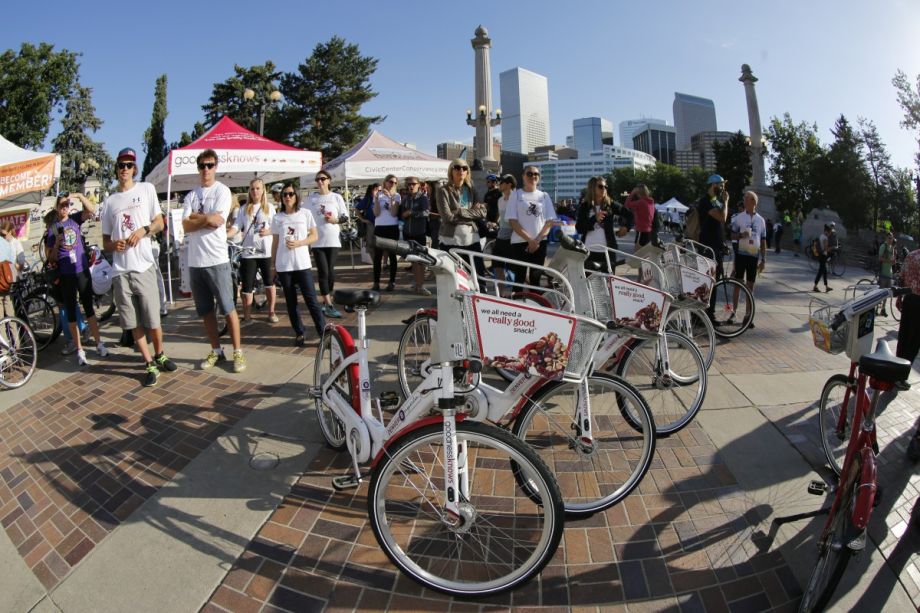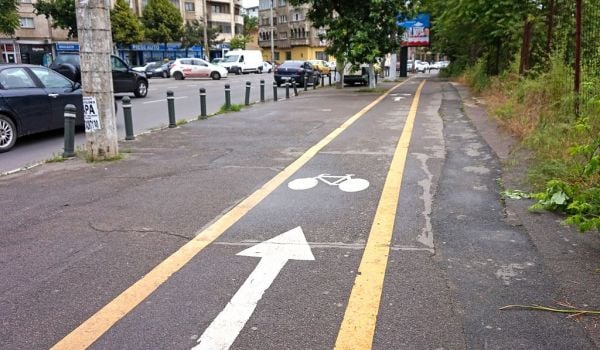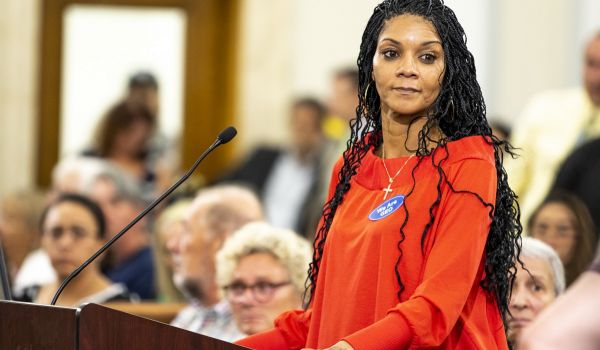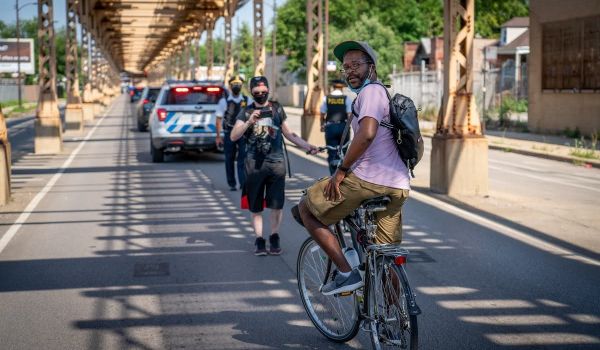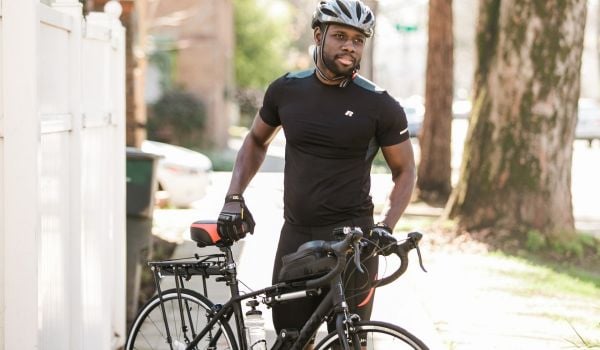Too often, protected bike lanes spark controversy along well-defined political lines. But in sprawling Denver, where public-private partnerships are building one of the country’s most advanced transit networks, a new kind of alliance makes an unlikely team of cycling advocates and downtown business groups, including oil company Anadarko. Organizers’ toolkit of choice is just as surprising: a mix of old-fashioned fundraising and online crowdfunding.
A planned protected bike lane would line Arapahoe Street in downtown, eventually syncing up with several other protected cycle tracks. But while those other lanes will most likely be funded publicly, the Arapahoe Street project is being spearheaded by the Downtown Denver Partnership, a business organization.
“We wanted to find innovative ways for businesses to show their support,” says Aylene McCallum, the Partnership’s senior manager for transportation and research. She adds that as newer firms recruit young workers, they’re hearing fewer questions about parking and more like “Is it safe to bike here?” and “Where’s the nearest bike lane?”
The Partnership collected $120,000 in donations from private sector businesses, the Downtown Denver Business Improvement District and the Gates Family Foundation before going online, McCallum says. Now, through the nonprofit civic crowdfunding site Ioby, the partnership is accepting donations from anyone and everyone who might feel like chipping in. Their goal is about $35,000 and just over $20,000 has been raised so far.
Though the lane’s funding is anything but traditional, its design and installation will mirror other public projects. The Partnership has been working “step by step” with the city, McCallum says; a public meeting determined the path’s location and once funds are collected, the project will go through a normal design review process.
According to Emily Snyder with the Denver Public Works, the city was already in the process of bolstering its bike plan to add more protected lanes. The Partnership’s $150,000 pledge “supplements and accelerates” the city’s vision, Snyder says, but it would have sought to build the lanes eventually regardless.
“We’re committed to doubling the system that we have regardless of whether we’d received this funding or not,” she says.
Once built, the city will be responsible for maintaining the lane, and Snyder adds that “it’s not being treated any differently than any other public bike lane.”
The project’s crowdfunding has precedence in Memphis, where a similar effort (also using Ioby) raised money for a bike lane along Broad Avenue in the city’s Binghampton section. Called “the Hampline,” the lane was built with a number of public grants, as well as nearly $70,000 raised online by its supporters.
Crowdfunding civic projects is a creative strategy that does raise a number of ethical questions. For example: Are higher-income areas more likely to raise funds?
Snyder says she’s heard this concern raised by the public. But a look at the available data on crowdfunded civic projects paints a more complex picture than you might expect. Rodrigo Davies, a researcher at Stanford, has found that a majority of civic crowdfunding projects do not occur in low-income areas, but some platforms actively cater to historically underserved areas. And Ioby has a good track record of soliciting a large number of low-value donations, rather than the large dollar amounts you’d expect to see in higher-income areas.
“[Crowdfunding] can just as easily become a part of the toolkit for community organizing and be a mechanism for getting resources to places where they’re needed as it can do the opposite,” Davies writes.
For now, it’s too early to tell how the future of crowdfunding will evolve. But in Denver, the trend is picking up. According to a Confluence Denver story, WalkDenver raised almost $9,000 to fund pedestrian infrastructure in Jefferson Park while PLAY Denver raised more than $5,000 to pay for child-friendly bus stops. According to the Ioby post, the bus project is funded with the goal of serving children living in poverty. Jefferson Park, meanwhile, has a median income $50,000) close to Denver’s and a poverty rate (about 20 percent of all individuals) slightly higher than the rest of the city.
So far, community advocates seem to be on board. BikeDenver supports the project, according to Executive Director Molly North.
“In general, we support any kind of enhanced bicycle network that enables all kinds of users to ride — children, families and seniors,” she says.
Asked whether the organization worries about private donors and crowdfunding replacing publicly funded projects (especially as bike advocates fight for a fraction of modal funding in other cities), she echoes Synder.
“The city is doing a good job of building a bike network,” she says, adding that clear indicators of support are taking shape in the form of lanes and other facilities.
Crowdfunding for a project like this is simply a way for “residents and employers to vote with their dollars,” she says.
The Works is made possible with the support of the Surdna Foundation.

Rachel Dovey is an award-winning freelance writer and former USC Annenberg fellow living at the northern tip of California’s Bay Area. She writes about infrastructure, water and climate change and has been published by Bust, Wired, Paste, SF Weekly, the East Bay Express and the North Bay Bohemian
Follow Rachel .(JavaScript must be enabled to view this email address)


